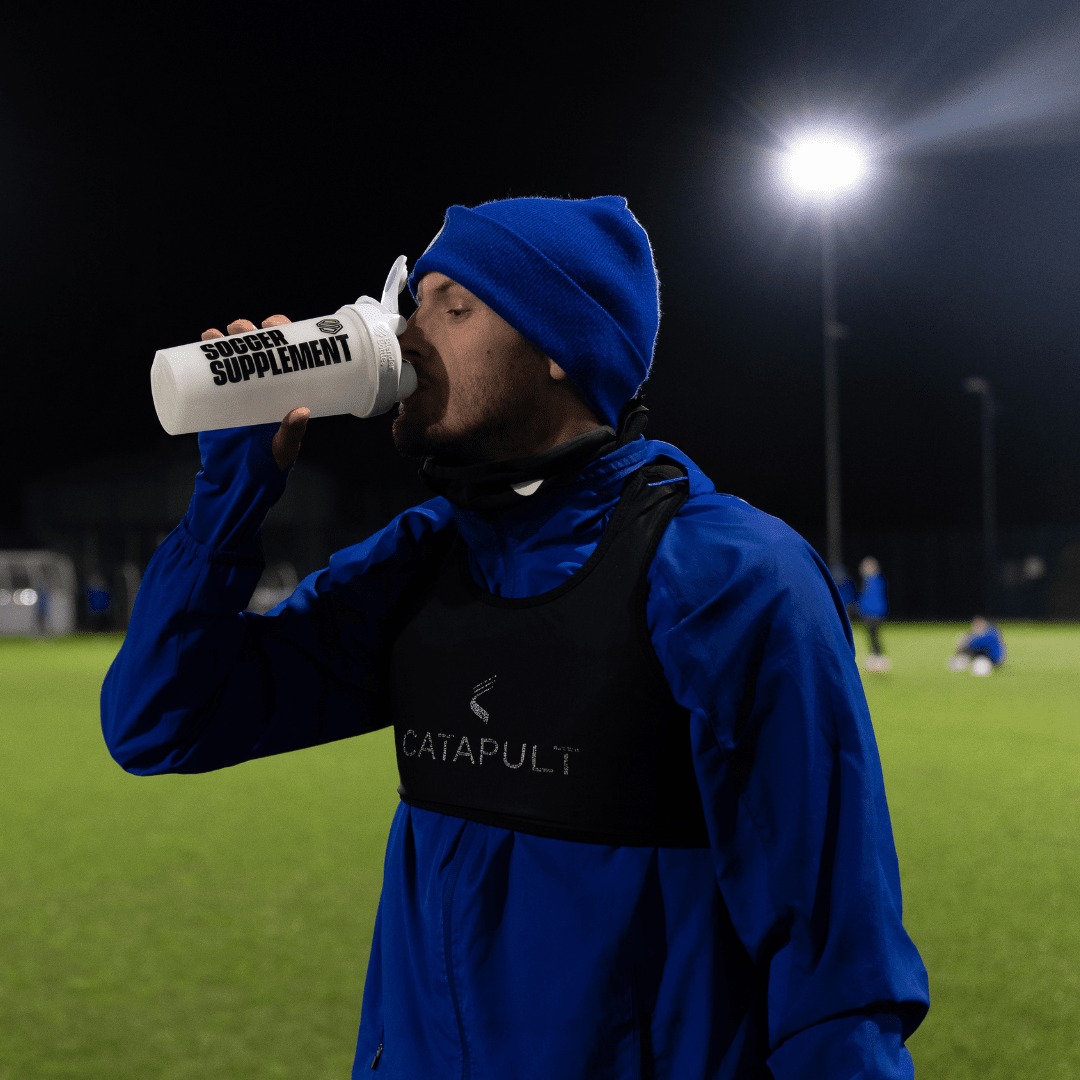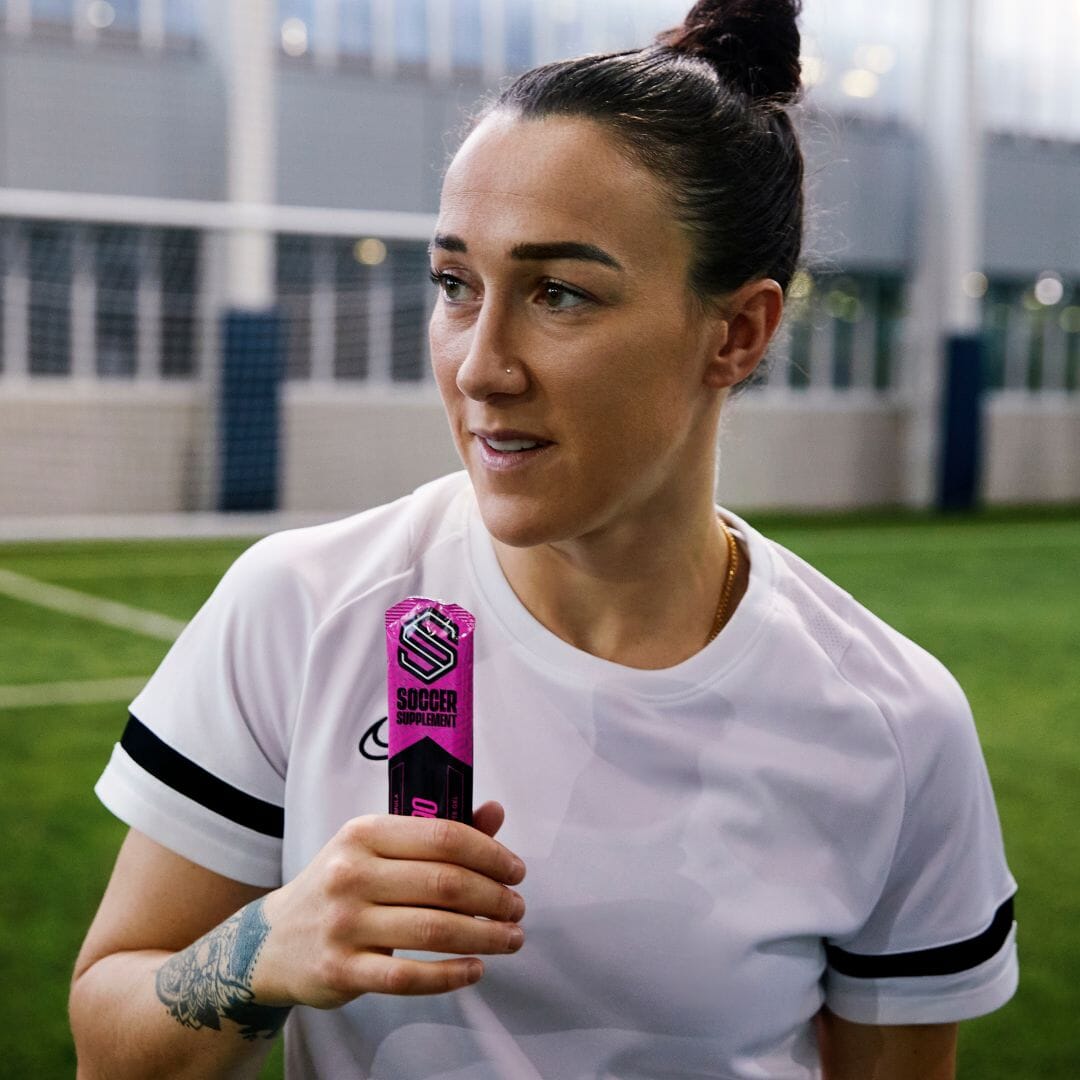Footballers of all levels need sufficient supplies of important vitamins and minerals to be able to fuel and recover properly, while protecting their bodies in the process. Arguably one of the most critical nutrients is vitamin D.
While it may have been a little underrated in the past, vitamin D is now in the spotlight as its extensive benefits have become clear.
In this article, we explore everything you need to know about this complex nutrient – what it is, why footballers need it, and how to get enough.
What is Vitamin D and Why Do You Need It?
Let’s start with the basics. Vitamin D is actually a family of nutrients, naturally produced in the skin through exposure to the sun’s ultraviolet rays – this is the reason why it is commonly known as the ‘sunshine vitamin’.
Vitamin D acts as both a vitamin and a hormone, playing many roles in the body. For example, it regulates calcium and phosphorus absorption, which is crucial for building and maintaining strong bones. In fact, evidence suggests that low vitamin D levels in the body can increase the risk of stress fractures in athletes – and that means footballers!
In addition to bone health, vitamin D is a key player in a strong immune system. It is believed that the nutrient can boost immunity and help the body tackle infection, reducing the risk of colds and flu.
Not content with improving immunity and strengthening bones, vitamin D is also understood to increase physical strength in upper and lower body limbs, ease symptoms of clinical depression, and even reduce your risk of cancer.
What are Vitamins D2 and D3?
If you have read anything about vitamin D supplements, you may have noticed the variations ‘D2’ and ‘D3’. As mentioned above, vitamin D is a family of nutrients and these are simply two different members of that family.
Vitamin D3 (known as cholecalciferol) is produced in animals, and therefore found in animal products, while vitamin D2 (ergocalciferol) is produced in plants and fungi, and therefore found in plant-based foods.
Studies suggest that Vitamin D3 is the more effective form for raising total vitamin D levels, although in many supplements it is derived from animal products and therefore can be an issue if you are following a vegan diet.
How Much Vitamin D Do You Need?
The good news is that it is impossible to overdose from the vitamin D produced by your body through sun exposure. The bad news is that it is difficult for the majority of us to get enough vitamin D from sunlight alone… especially in the UK… and especially during winter!
This is why people turn to food sources and supplementation to top up their levels.
The NHS and other health organisations around the world advise taking 10μg (micrograms) translating to 400 IU (International Units) of vitamin D every day between October and March.
While 10μg is enough for most people, some people take more to achieve optimal levels of the nutrient in their blood. Taking more is considered very safe up to 100μg (4,000 IU) a day. Higher doses than this should only be taken if prescribed by a healthcare professional.
How to Get Enough Vitamin D
Now we know what it is and how much we need, let’s look at how we can ensure we are getting enough of the good stuff.
As mentioned, exposure to sunlight allows the body to produce its own vitamin D, so it makes sense to spend as much time outside in the sun as possible. Going for a daily walk or run, or playing football outdoors in the spring and summer is an excellent way to keep your levels topped up.
The problem with this route is that there are many factors working against us. Namely that, aside from a few sunny weeks here and there, the UK is covered in cloud for the majority of the year, while we also cover our skin in a lot of clothing due to colder temperatures.
Even in blistering sunlight with next to nothing on, the sensible person will be wearing a protective sunscreen, which is good for skin health but will prevent you from producing that natural vitamin D.
Attention therefore turns towards what we put in our mouths.
Eating a good diet is usually the best way to get the nutrients your body requires, although, in the case of the sunshine vitamin, this may not be enough.
This is because vitamin D is found in a limited number of foods. These include mushrooms, eggs, fatty fish and fortified foods, such as some breakfast cereals, milks (including plant-milks), yoghurts and orange juice.
It is sensible to include some of these foods in a balanced diet, although to achieve optimum vitamin D levels in the autumn and winter, supplementation is the most sensible option.
At Soccer Supplement®, we offer our own Vitamin D3 supplement as part of our extensive range of vitamins designed specifically for footballers. Each tub contains 120 daily softgel capsules for a two months’ supply, offering 25μg per day to ensure optimal vitamin D levels.
Remember that if you are suffering from a vitamin D deficiency, taking supplements or spending a lot of time in the sun won’t be an instant fix. You will need a few months of supplementation to bring your levels of this essential nutrient back to normal.
In summary, vitamin D is a vital nutrient that every footballer should consider taking in supplemental form, even if you spend much of the year outside.
Click here to buy Vitamin D3








